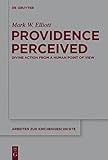Providence Perceived : Divine Action from a Human Point of View / Mark W. Elliott.
Material type: TextSeries: Arbeiten zur Kirchengeschichte ; 124Publisher: Berlin ; Boston : De Gruyter, [2015]Copyright date: ©2015Description: 1 online resource (334 p.)Content type:
TextSeries: Arbeiten zur Kirchengeschichte ; 124Publisher: Berlin ; Boston : De Gruyter, [2015]Copyright date: ©2015Description: 1 online resource (334 p.)Content type: - 9783110310566
- 9783110382976
- 9783110310641
- 231.5 23
- BT135 .E555 2015
- online - DeGruyter
- Issued also in print.
| Item type | Current library | Call number | URL | Status | Notes | Barcode | |
|---|---|---|---|---|---|---|---|
 eBook
eBook
|
Biblioteca "Angelicum" Pont. Univ. S.Tommaso d'Aquino Nuvola online | online - DeGruyter (Browse shelf(Opens below)) | Online access | Not for loan (Accesso limitato) | Accesso per gli utenti autorizzati / Access for authorized users | (dgr)9783110310641 |
Browsing Biblioteca "Angelicum" Pont. Univ. S.Tommaso d'Aquino shelves, Shelving location: Nuvola online Close shelf browser (Hides shelf browser)

|

|

|

|

|

|

|
||
| online - DeGruyter Die Gestaltungsprincipien Michelangelos, besonders in ihrem Verhältnis zu denen Raffaels : Aus dem Nachlass / | online - DeGruyter Von Priestern zum Patriarchen : Levi und die Leviten im Alten Testament / | online - DeGruyter Entscheidungen in Kirchensachen seit 1946. Band 55, 1.1.-30.6.2010 / | online - DeGruyter Providence Perceived : Divine Action from a Human Point of View / | online - DeGruyter Subjekt werden : Neutestamentliche Perspektiven und politische Theorie / | online - DeGruyter Skepsis, Providenz, Polyhistorie : Jakob Friedrich Reimmann (1668-1743) / | online - DeGruyter Boethius as a Paradigm of Late Ancient Thought / |
Frontmatter -- Acknowledgement -- Contents -- Introduction -- Chapter One: Providence in the early Christian Church’s Theology -- Chapter Two: The Medieval Account of Providence -- Chapter Three: Later Medieval Developments -- Chapter Four: Reformation Providence -- Chapter Five: The Doctrine’s Fortunes in the Early Modern Era -- Chapter Six: The Enlightenment’s ongoing Challenge to the Doctrine of Providence -- Chapter Seven: Providence in twentieth-century theological discussion -- Chapter Eight: Coming up to date: works in the last five years -- Conclusion -- Bibliography -- Index of Scripture References -- Index of Key Figures
restricted access online access with authorization star
http://purl.org/coar/access_right/c_16ec
This book will offer an account not so much of God’s Providence an sich, but rather of divine providence as experienced by believers and unbelievers. It will not ask questions about whether and how God knows the future, or how suffering can be accounted for (as is the case in the treatments by William Lane Craig, Richard Swinburne, or J. Sanders), but will focus on prayer and decision-making as a faithful and/or desperate response to the perception of God as having some controlling influence. The following gives an idea of the ground to be covered: The patristic foundations of the Christian view of Providence; The medieval synthesis of ‘objective’ and ‘subjective’ views; Reformational and Early Modern: the shift towards piety; Modern Enlightenment: Providence and Ethics; Barth and the Sceptics; The sense of Providence in the Modern Novel and World.
Issued also in print.
Mode of access: Internet via World Wide Web.
In English.
Description based on online resource; title from PDF title page (publisher's Web site, viewed 28. Feb 2023)


